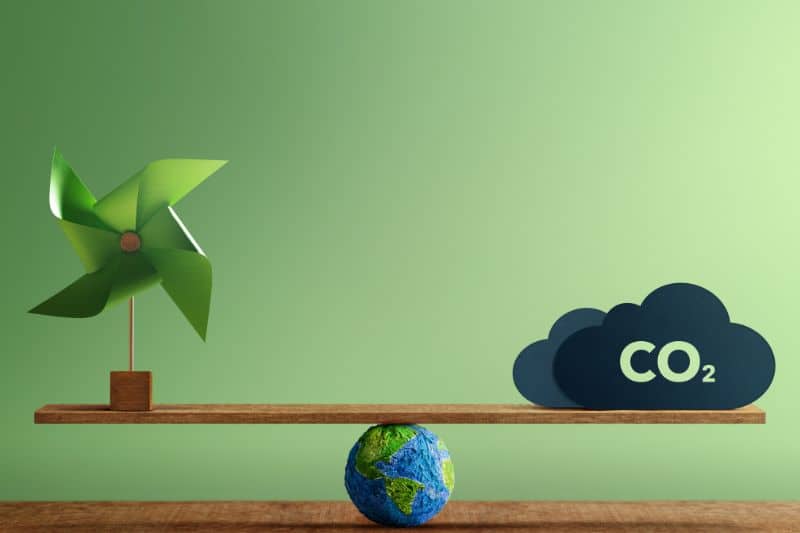Some years back, nobody paid much attention to the accumulation of waste in homes and landfills. It became so vast that the authorities were concerned that the phenomenon could create a disaster.
A solution had to be found, but one that is kind to humans and the environment. That’s how recycling came into existence.
Recycling is the process of converting waste into new, valuable, and useful products. Waste materials that can be recycled include plastic bottles, paper, cardboard, food and drink cans, trays, tabs, food and beverage cartons, and aluminum foils.
Although recycling has been going on for the past few years, recycling efforts should be increased, considering the amount of waste disposed of every day.
Several reasons exist as to why we should promote recycling. It helps us to convert our old products into new useful products. In other words, it is good for the environment.
You see, since we are saving resources and sending less trash to landfills, it helps reduce air and water pollution. Listed below are 21+ reasons why we need to recycle more.
21+ Awesome Reasons Why We Should Recycle More
If you’re wondering why recycling is becoming a famous mantra nowadays, here are some of the reasons:
1. Waste Is a Global Problem
Accumulation of waste is not just a problem for a single nation; it’s a global problem. If waste is allowed to accumulate unabated, humans might run out of locations to bury synthetic waste, or the waste might bring devastating effects to the environment, which is already happening through global warming.
2. Recycling Helps Conserve Natural Resources
Plants are considered limited resources. If a lot of pressure is exerted on these natural resources, they might be depleted fast. Recycling is the only way to dramatically stop the pressure applied to these resources.
According to the United States Environmental Protection Agency, recycling one ton of paper saves up about 17 trees and 17,000 gallons of water.

3. It Minimizes Carbon Emissions
Recycling greatly minimizes carbon emissions, commonly referred to as greenhouse gasses. If these wastes were not recycled, they would end up being combusted, emitting dangerous greenhouse gasses.
Plus, research studies suggest that a single tree can eliminate 250 pounds of carbon dioxide from the atmosphere every year. Recycling is needed to save more trees to ensure a well-balanced level of carbon dioxide.
4. Reduces Air Pollution
Have you ever passed close to a landfill? Can you remember the horrible smell that was coming from it? Well, that smell causes air pollution and is one of the reasons we should consider recycling instead of the traditional disposal of waste.
When we recycle, it means the number of products producing that stench will be cut down. It also implies that factories will reduce the amount of waste in production. This less reliance on landfills reduces pollutants and improves health.
Moreover, recycling paper helps to reduce the number of trees cut. This, in turn, reduces the greenhouse effect as the trees absorb carbon dioxide in the air.
5. Almost Everything Can be Recycled to Reduce Waste
When we try, everything from batteries to food waste to clothing, electronics, glass, metal, paper, and plastic can be recycled.
According to a Canadian report, nearly 80% of typical household garbage comprises recyclable or organic materials that break down quickly.
As per estimation, at least 50% of the materials thrown into the garbage by a person could be recycled instead.
6. Saves Energy
Recycling has proven to save lots of energy, and that’s because manufacturing products from raw materials consumes a lot of non-renewable energy.
Companies that utilize recycled aluminum save up to 95% of energy while producing aluminum products compared to companies that source virgin materials.
Making goods from recycled materials uses less water and energy and creates less pollution.
7. Minimizes Accumulation in Landfills
The rate of waste disposal in modern times is increasing alarmingly. This rapid increase translates to the accumulation and subsequent overflowing of landfills. And with the steady growth of waste, space for waste disposal can run out if a solution is not found.
Cities near oceans have polluted the water for many years due to landfill overflow. The oceans cannot entertain this habit anymore. The only way is recycling.
As much as 60-75% of waste occurring in landfills can be recycled. This means that if everyone made a point of recycling, we would have 65-75% less land for waste moving forward.
8. Recycling Reduces the Need for Landfills
Every piece of trash taken out of the garbage and put into the recycling reduces the need for new landfills and leaves more room in the existing ones.
The utilization of a piece of land entirely to become a massive mountain of garbage is a waste of resources. It damages the property value of the land and improves the quality of life in adjacent communities.

9. Beefs Up Property Value
One of the most effective ways to beef up the value of your property is to embrace recycling. People who take up the practice of recycling reduce the amount of waste going into landfills.
It’s a no-brainer that landfills significantly lower property value since nobody likes the idea of living near a smelly landfill.
You and your neighbor’s effort to recycle more will mean your city will need fewer landfills, and this will keep the surrounding air clean. The best routine is to recycle each week.
10. One Person Can Make a Big Difference
Most people have already made up their minds that one person cannot make any difference in regard to recycling waste. That thinking might apply in other fields. In recycling, an individual can make a big difference.
On average, every American produces about 1600 pounds of waste every year. Up to 1100 pounds of this trash can be recycled every year per person. That represents a half a ton per individual.
Assuming you have a small family of four, you will minimize waste by more than two tons each year just by recycling.
11. Leads to The Creation of Jobs
Recycling takes place in industries. If recycling is ramped up, many recycling plants will be set up. More recycling plants mean more jobs.
Statistically, recycling creates 10 times more employment opportunities than landfill waste management.
Recycling 14,000 tonnes of waste creates nine jobs, composting the same amount seven, but landfilling births just a single job.
12. Saves You Money
Developing the habit of buying only what you need and reusing products rather than purchasing new ones saves a lot on your budget.
In addition, in most states in America, it’s more costly to dispose of waste than to recycle it.
Some recycling companies buy waste from neighborhoods for their recycling activities. This brings you an extra income that you can channel into your budget. Revenue can also be generated from selling compost to the community.
13. Accelerates Technological Advancements
Modern-day society has seen increased social pressure to embrace more eco-friendly practices. This has forced companies to search for innovative technologies to incorporate recycled materials into their line of products. The new technologies are best for Mother Nature.

14. Conserves Wildlife
Increased use of recycled products puts a stop to the exploitation of natural resources like forests, rivers, lakes, and wetlands, which are natural habitats for wildlife.
15. Creates New Demand
Developing the recycling routine and purchasing recycled products ramps up demand for more recycled products, minimizing waste and improving the economy.
Most American companies rely mainly on recycling programs to supply the required materials for their recycled products.
In fact, according to statistics, the recycling industry is raking in over $100 billion in revenue each year.
16. Ensures a Truly Sustainable Future
Planet Earth harbors limited natural resources and a restricted capacity to recycle waste.
By recycling, we are doing two great things for our planet and future: minimizing our immediate effect on Earth and developing sustainable practices for future generations.
17. Accumulation of Waste Causes Deadly Diseases
Poor disposal and accumulation of waste in landfills lead to the emission of toxic and infectious gasses. If these gases are inhaled over time, they may lead to a wide range of respiratory diseases, such as asthma.
Also, if the toxic liquids draining from landfills find a way into water sources, infectious diseases like diarrhea, typhoid, and dysentery could spread. Recycling reduces waste in landfills, which, in turn, minimizes the chances of getting these illnesses.
18. Maintains Groundwater Quality
If landfills are allowed to accumulate, they can impact groundwater quality. Most landfill management companies do not try to treat their landfills. They only throw the waste in a dug-up hole and bury it.
Most ignore that a significant percentage of waste thrown in landfills is neither eco-friendly nor biodegradable, and the contaminants occurring in these wastes may find a way into our groundwater supply, making it unsafe for consumption.
This typically happens when rainwater or runoff from landfills snakes through the land to water bodies such as streams, rivers, and lakes. This phenomenon destroys the already fragile ecosystems and renders the fresh and safe waters risky to drink.
Recycling of waste will prevent the continuity of this dangerous cycle and reduce the contamination of groundwater. Recycling products such as batteries and other e-waste materials also help keep contaminants from getting into water supplies.

19. Clean Cities and Neighborhoods
On average, Americans utilize about 2,500,000 plastic bottles each hour. Sadly, most of these plastic bottles are thrown away, and a significant percentage of these users aren’t responsible enough to throw the plastics in the right place.
The plastics end up scattered in city streets and neighborhoods, leaving these places looking unsightly. Recycling will ensure these plastics never occur on the streets as people pick them up to sell to recycling companies.
20. Keeps Waste Collection Costs Down
The cost of collecting garbage from every neighborhood is relatively expensive. Large trucks must be deployed to pick up and transport the waste to landfills. Statistically speaking, it takes $50 to send trash to landfills.
Recycling has significantly reduced the cost of collection, as most garbage goes to recycling plants. Plus, recycling is much cheaper, as it takes only $30 on average to recycle a ton of trash!
21. Recycling Prevents Waste From Becoming Pollution
Waste diversion directs garbage away from landfills or incinerators through reuse, recycling, composting, or gas production through anaerobic digestion. It prevents waste from becoming a source of pollution.
We know there is an enormous floating patch of garbage in the Pacific Ocean that is twice the size of Texas. Eventually, everything finds its way to the ocean. And it was indeed entirely preventable.
When we recycle the materials, we prevent them from finding their way into the environment, where they can harm both people and animals.
Recycling helps in waste diversion and is a critical component of effective and sustainable waste management that encourages environmentally sustainable behavior.
22. We Need Less From the Earth
We need fewer materials to take from nature and more we reclaim from our own homes. Recycling paper means less deforestation. Recycling metal means less mining and thereby less mining pollution.
Keeping nature intact benefits every living organism, and more land is available for agriculture, the wild, and other uses.






